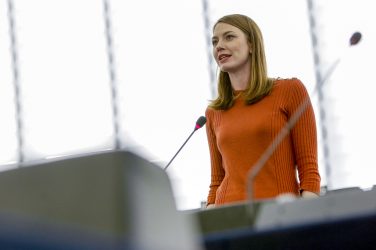What is the environmental outlook following COVID-19? E&M’s former editor Isabell Wutz argues that progress is far from guaranteed as efforts to reduce pollution are not ambitious enough and economic recovery is again at the forefront of European agenda and a threat to the environment. However, as awareness about environmental issues is higher than ever, the opportunity to act for a better future is now.
The pandemic has hit everyone and everything with its long-lasting consequences still to be seen. But what is clear is that we can shape the outcome for the better – for people and especially the environment. Looking at how Europe has acted during the last year, what can we expect?
Yes, the pandemic was a big shock, but with vaccinations being produced and rolled out, there might be hope for an end of life with lockdowns, PCRs and social distancing and look into the future. But instead of going back to ‘normal’, voices are getting louder about treating the pandemic as an opportunity to shape our approach to the planet for the better after COVID-19. For that, an agreement about what the desired outcome is and in which circumstances we want to find ourselves emerging from this unprecedented situation needs to be reached. However, as usual, voices are plenty and diverse.
For the capitalist economy, this means enhancing the previous status quo with its growth-striving and consumption-based practice. Socially speaking, people’s struggles are on the frontline, as people scramble to recover their livelihoods, as well as their mental health, in a just and equal way. Unsurprisingly, just like in the other areas, the environment has not changed its perspective either. Unless we urgently overhaul our systems, diverging from fossils fuels, sustainably using our natural resources and abandoning perverse subsidies, our future looks uncertain.
Simply speaking, Europe’s greener and more digitalized opportunity might be a threat dressed up in shiny clothing.
A threat dressed up in shiny clothing
How Europe transitions from the pandemic situation into a “new normal” will depend on the course of politics. The response from politicians to Covid-19 in the beginning, although slow, was somewhat promising. We saw the introduction of the recovery package EU Next Generation Fund, which includes the Recovery and Resilience Facility (RRF), and will mainly go to Members States to boost their economy and come back stronger from the pandemic in a greener and more digitalized way. €672.5 billion have been allocated to the fund to transform the economy of the European Union in the long-term. A step that unfortunately appears to be falling short of its promise the more time passes. The European Parliament, against the recommendation of its Committee on the Environment, Public Health and Food Safety, voted for a package which leaves the door open to include gas, allowing public money to go to fossil fuels.
Simply speaking, Europe’s greener and more digitalized opportunity might be a threat dressed up in shiny clothing. The vote is just one example of many missed opportunities to use the recovery funds to create a more environmentally-friendly future, leaving the question when will Europe take the climate and biodiversity crises seriously, if not now? The EU targets to reduce greenhouse gas emissions up to 60% until 2030 and achieve climate-neutrality by 2050 seem like empty phrases in light of the missed opportunities with the RRF. Similar behavior could also be seen on the national level, when money was quickly handed over to prop up airlines, such as Air France, without any environmental conditions attached.
Our perceived reconnection to nature
The opportunities that emerge from Europe’s response do not only lie with policy-making but go much further. What we see currently is a perceived reconnection to nature. People go out walking or cycling, seed their plants and food in their garden or on the balcony. They advocate for greener places in cities and more cycling infrastructure, they travel to local areas for a timeout and animals have raised extremely in the likeability score. The well-established Friday’s for Future demonstrations have converted to online platforms, and some of their messages have seemingly entered our homes. But will they be here to stay?
When the struggles are still fresh, teachings are more effective. Now, people know the connection between pandemics and our treatment of the natural world. Many read, listened or watched the disastrous approach Europe is taking when it comes to our planet. Awareness about the consequences for the environment has risen with an influx of people informing themselves about the nature of the virus. This presents an opportunity: An opportunity to lead the way to change minds of communities, thereby changing our attitude towards the environment, the economy and hopefully – our practices.
This could be the catalyst to make the pandemic the opportunity it needs to be.
Cover photo: Lorenzo Zunion on Unsplash










